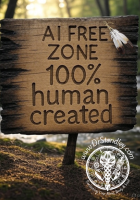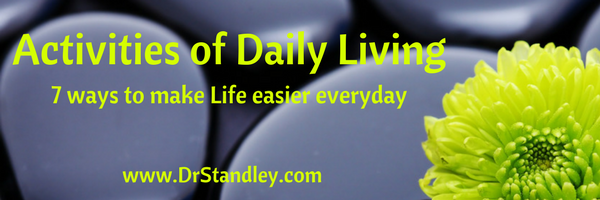|
|
 |
|||||||||

Activities of Daily Living (ADLs) is a real term used in healthcare that refers to daily basic self-care activities in an individual's residence, outdoor environment or both. The ability or inability that an individual performs their ADLs is a measure of the functional status of the individual, particularly the injured, those with disabilities and the elderly. Very young children require assistance from adults to perform ADLs since they have not yet developed the skills necessary to perform ADLs on their own. Basic ADLs (bADLs) are the things we normally do such as bathing, dressing, feeding ourselves, functional mobility, personal hygiene and grooming. Instrumental ADLs (iADLs) are things such as housework, money management, preparing meals, shopping and work. Sometimes it is necessary to review the rules of kindergarten to remember how to be nice to others and use Good manners. And sometimes we just need to go back to the basics of the 'Activities of Daily Living' in order to take better care of ourselves and start living Life rightly. Below you will see 7 simple activities to accomplish at some point during the day all under the motivation of the the daily mentation question below. You have 24 hours to get through this question along with the 7 activities. READY? SET? GO! What does my productivity and level of response say about my beliefs?

Choose two (2) of the 'VITAMIN B1' foods below DESCRIPTION: Vitamin B1 is a water-soluble nutrient that is not stored in the body and has to be replenished every day. It is not so easily destroyed by normal cooking temperatures. It is found widely in animal and plant tissues but rarely in high concentrations, except in brewer's yeast. POTENTIAL BENEFITS: Promotes neurotransmission involved in memory and learning. Its roles include carbohydrate metabolism, maintenance of normal digestion and the appetite, and it is essential for normal function of the nervous, muscular and cardiovascular system. It also provides a certain amount of energy. It may be helpful for fertility and lactation. FOOD SOURCES: Alfalfa sprouts, almonds, asparagus, avocado, barley, bee pollen, Brewer's yeast, broccoli, brussel sprouts, chickpeas, dates, egg yolks, figs, fish, flour, garlic, kelp, kidney beans, lentils, liver or organ meats, navy beans, oatmeal, onion, oranges, parsley, peanuts, peas, pecans, plums, pork, dried prunes, raisins, wild rice, rice bran, salmon, seeds, soybeans, spirulina and sunflower seeds, green vegetables, watercress, wheat germ, whole grain cereals, and wheatgrass.
DISCLAIMER **This web site's goal is to provide you with information that may be useful in attaining optimal health. Nothing in it is meant as a prescription or as medical advice. You should check with your physician before implementing any changes in your exercise or lifestyle habits, especially if you have physical problems or are taking medications of any kind. |






















